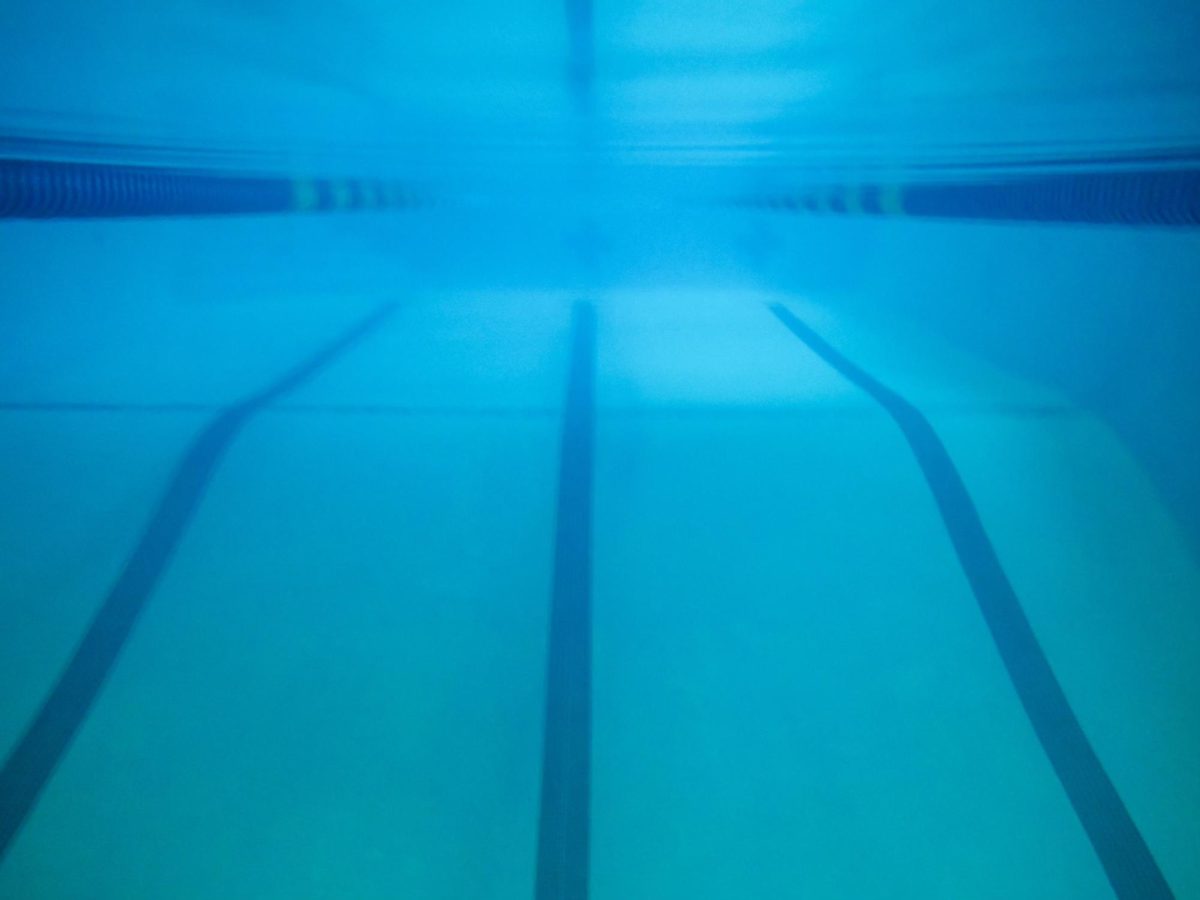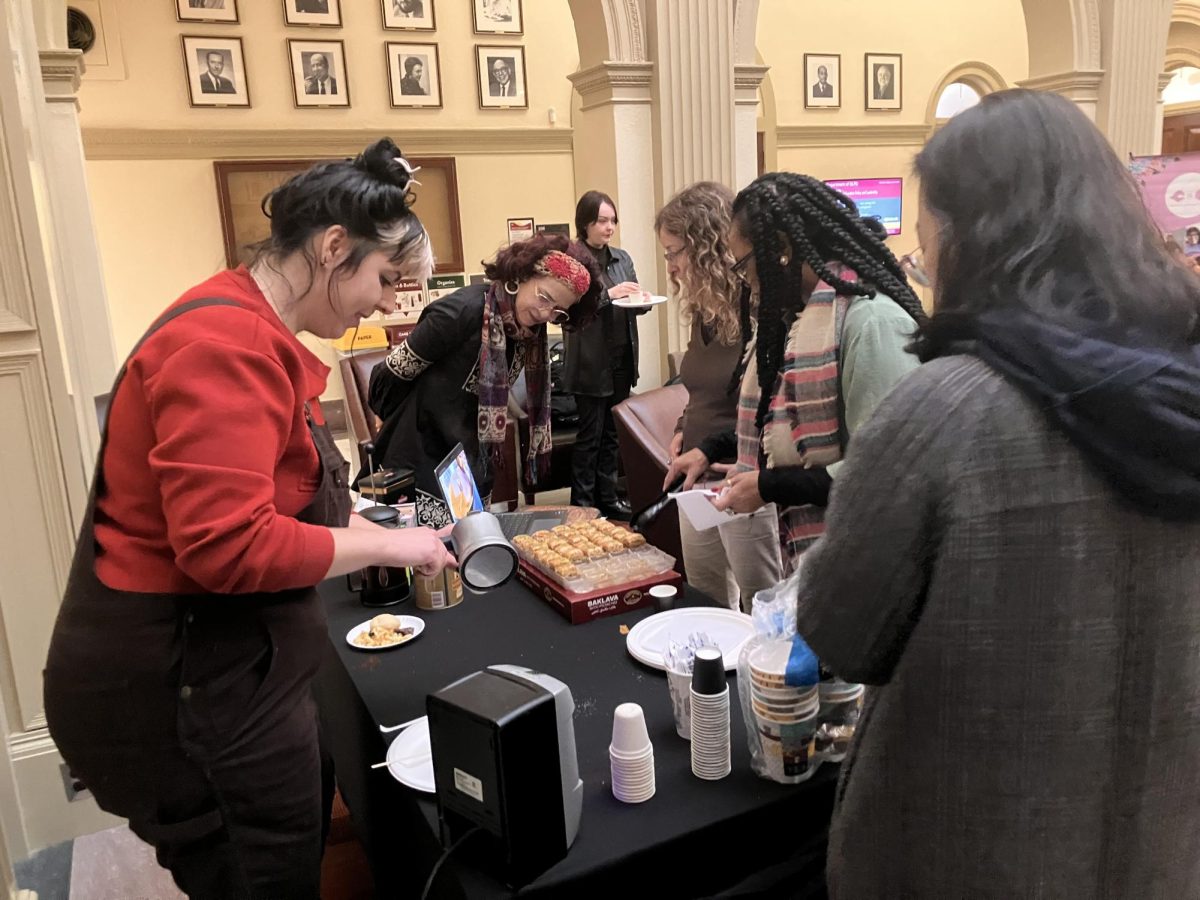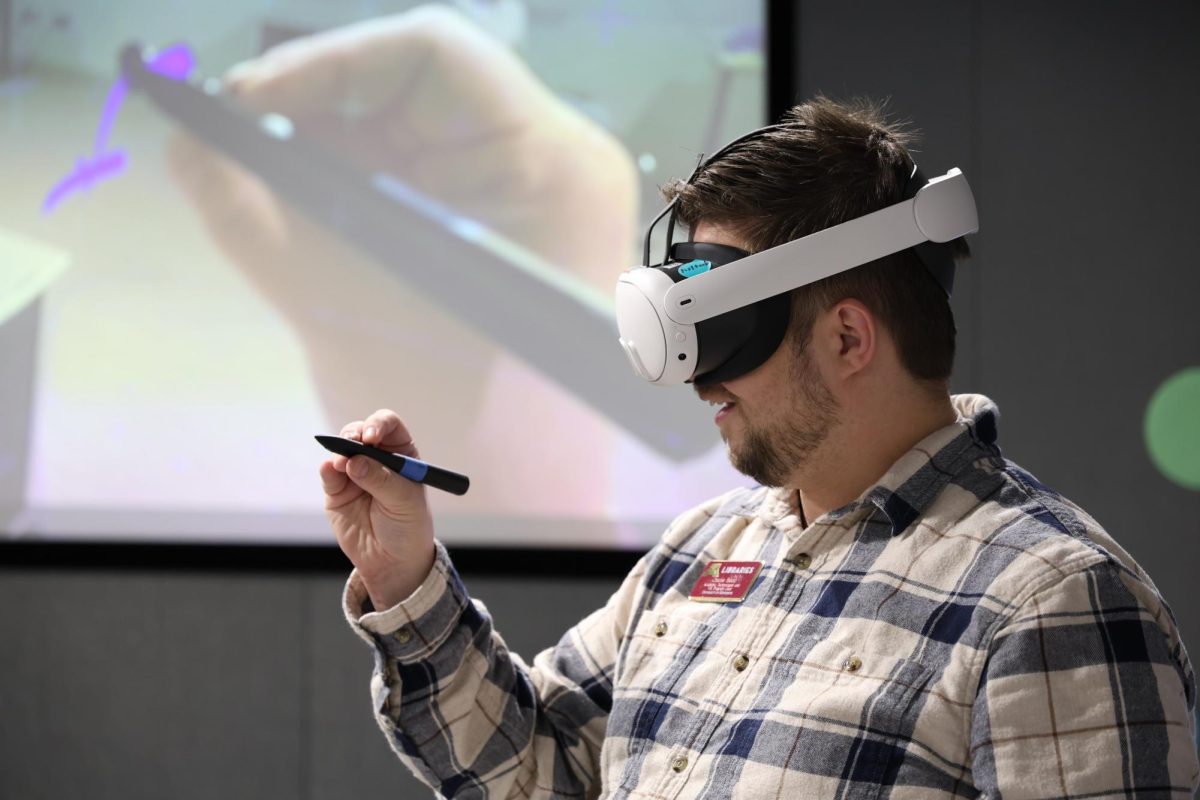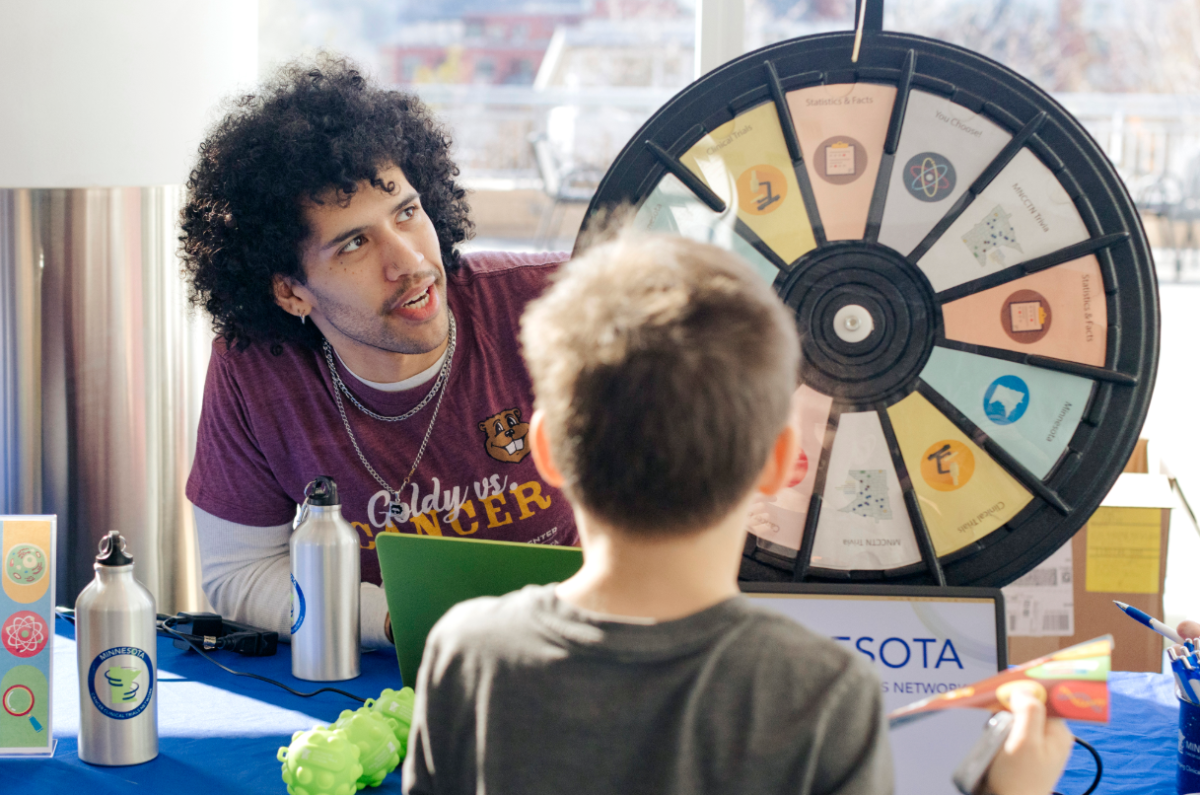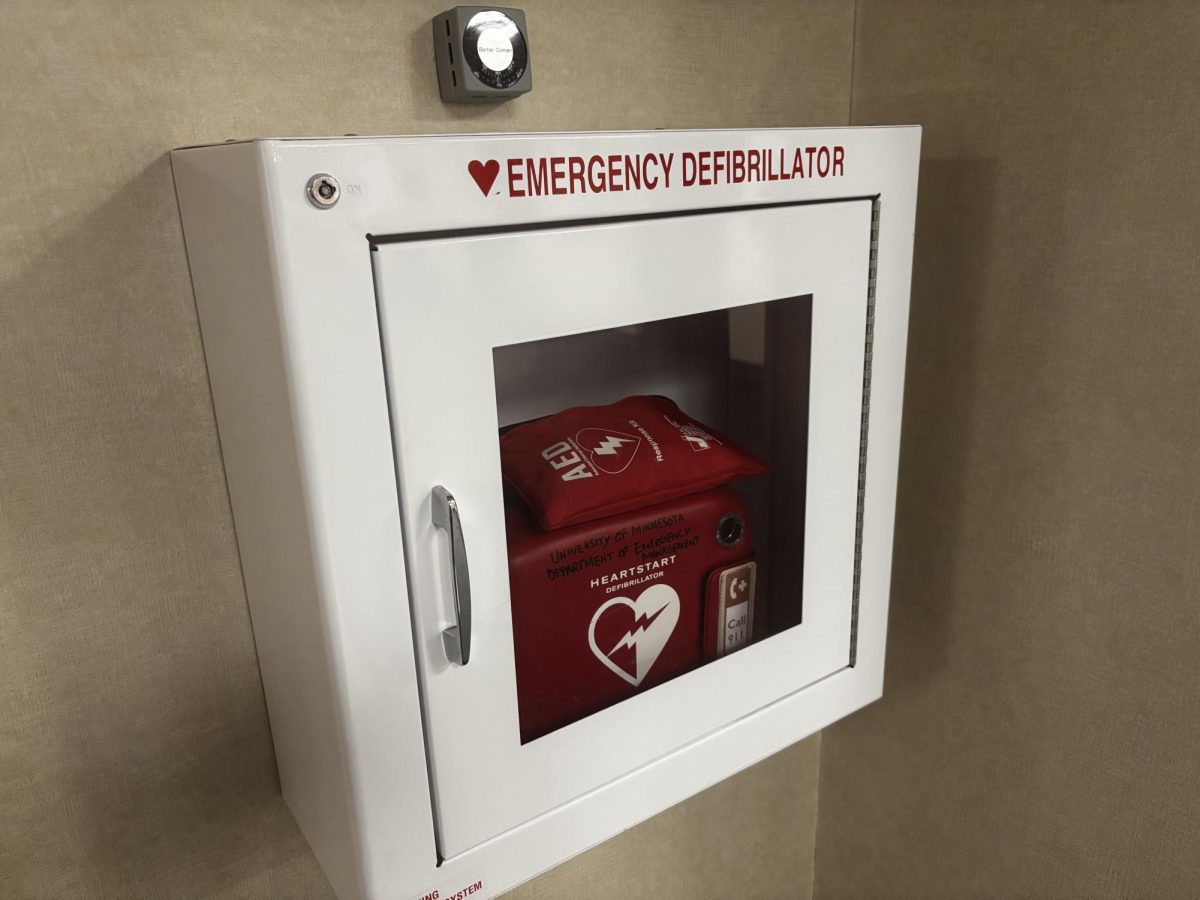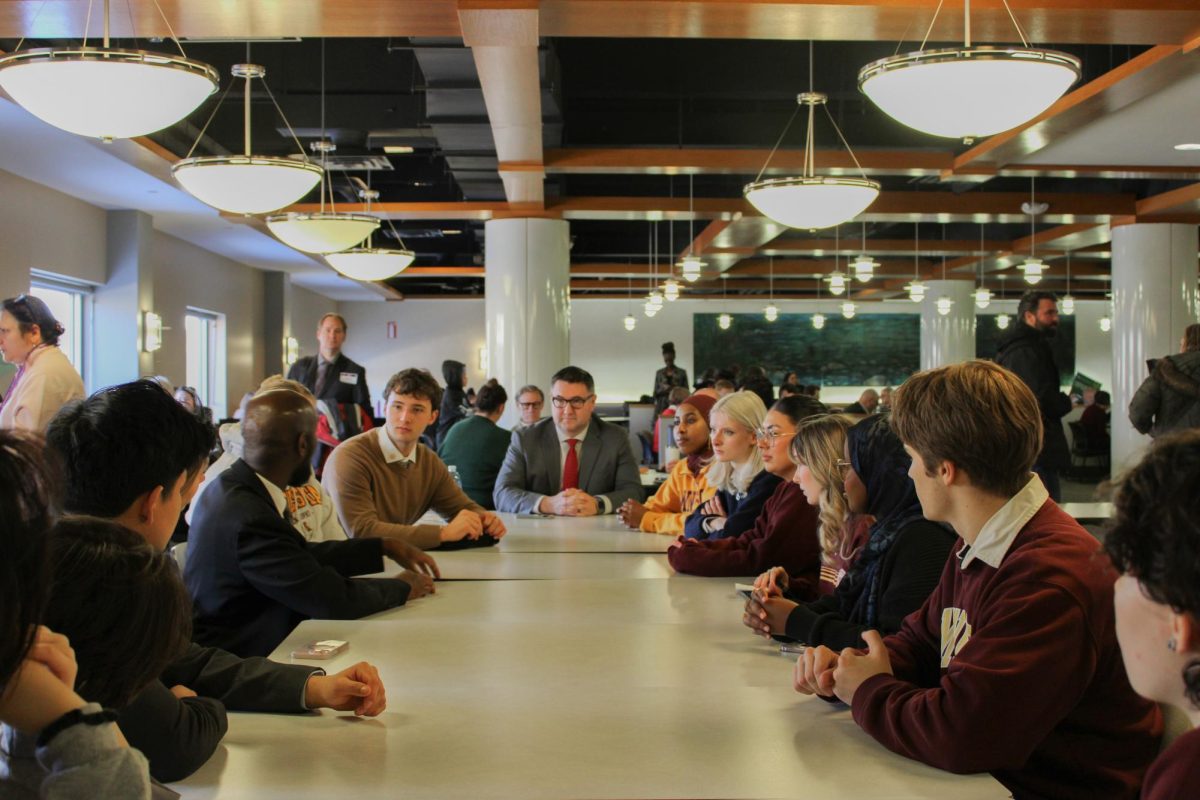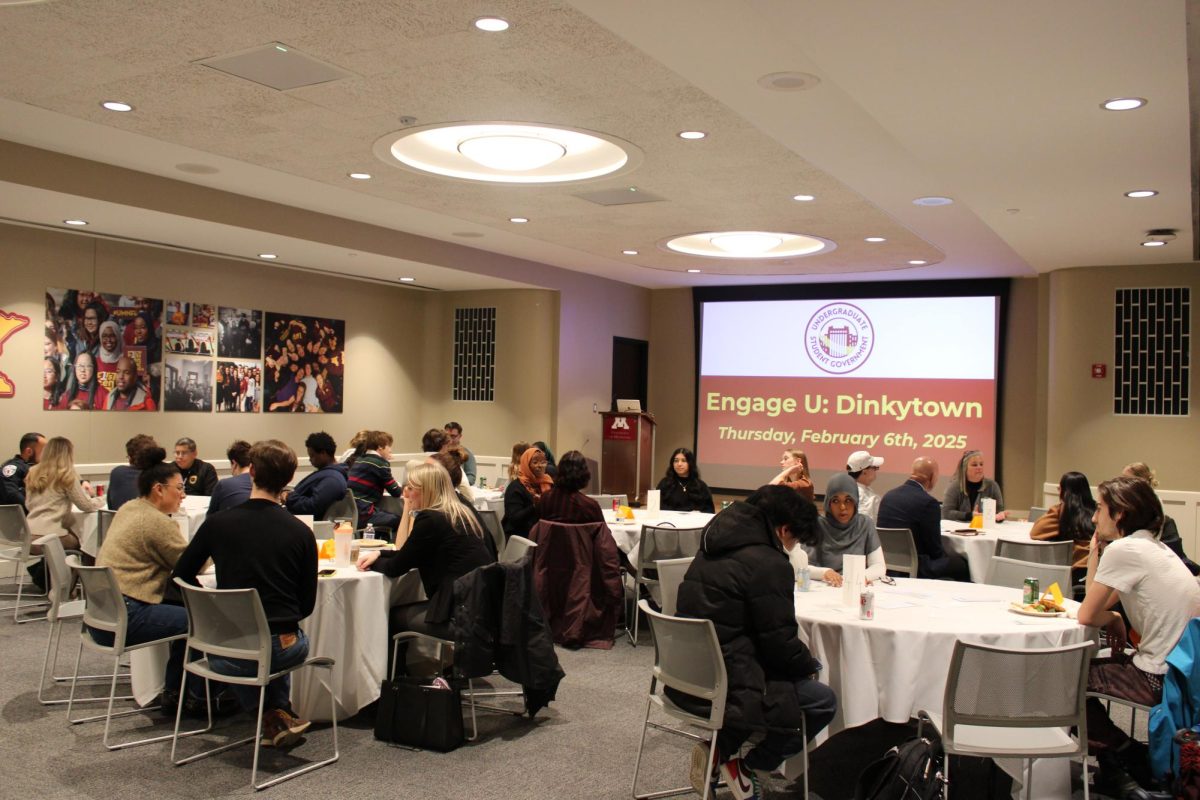The University of Minnesota’s Scuba and Skin Diving class teaches scuba skills as well as the physics and physiology of scuba diving.
The class is divided between a classroom and a pool portion where students practice with scuba gear.
Students have the option to take one of two sections. One section meets once a week for four hours. The other section meets twice a week, one day for the two-hour classroom portion and another for the two-hour pool portion.
Robert Karl, class instructor and owner of Superior Expeditions, a Scuba Schools International dive center, said people should get scuba certified to eliminate diving risks.
According to Karl, the class teaches students half of what they need to get certified, though they need to complete four open-water dives, which they can complete at a scuba school like Super Expeditions.
“The classroom portion is just understanding what happens to your lungs when you are underwater, what happens to air when it gets compressed and expanded, how to deal with decompression and how to deal with dive planning in general,” Karl said.
Saaraa Aggarwal, a third-year student in the class, said students are taught how to put together and wear their gear on the first day. Students also complete a swim test where they swim a minimum of 400 yards.
“When you actually do it, you don’t quite realize how easy it is because you are paired with a buddy at all times, and that buddy can really help motivate you,” Aggarwal said.
Karl said the pool portion gives students hands-on experience learning how to breathe underwater with and without a mask, share air if someone runs out, get back to the surface and prepare for emergencies.
“It’s funny because you would think most problems would happen underwater when diving, and they don’t,” Karl said. “Most problems happen on the surface where you get people having heart attacks or drowning because they ran out of air too from the boat and try to swim back while swallowing water.”
Oliver Moore, a second-year student and assistant class instructor, said the class prepares students for other emergencies like how to restrain a diver who is in panic and helping an unconscious diver.
When they are done with the class, students are prepared for about 95% of the most common scuba injuries, according to Moore.
“After that, there’s a ton of progression you can do outside of the University like an actual rescue diver course, which goes way in-depth,” Moore said.
Moore said the most common challenge students face is learning how to dive without a mask on.
“A lot of people breathe water through their nose or panic and want to go to the surface,” Moore said. “It is important to learn this skill because water can get into your mask, and it can break or be ticked off by someone else, so you need to be prepared for that.”
Elizabeth Cremeans, a fourth-year student in the class, said she subconsciously breathes through her nose, even when focusing air through her mouth. Without the mask, she sometimes accidentally inhales water, which she is working on.
Cremeans said she had no prior experience with scuba diving before taking the class, so it is cool to have the opportunity to do this.
“For me, it’s fun to be active in a different way instead of doing a typical workout,” Cremeans said. “I am still moving and lifting things, so it is fun to be active and not feel like I am actively working out.”
Cremeans said those interested in getting scuba certified can join Superior Expeditions on a January trip to Cozumel, Mexico. Students can complete their four open-water dives on this trip or just have fun diving.
Aggarwal said the way the class is instructed is also very convenient for students.
“There are basically four people to one instructor,” Aggarwal said. “With scuba, you really need to have somebody’s attention at all times, and you also work with a buddy, which is super nice.”
The instructors give students 15 minutes of free time at the end of each class, which helps them practice and explore how they want to, Aggarwal added.
Moore said the number one rule in diving is to keep breathing and have fun.
“Don’t stress,” Moore said. “If you can’t do something right now, we will do it later. Just swim around, pretend you’re a fish and have fun.”


